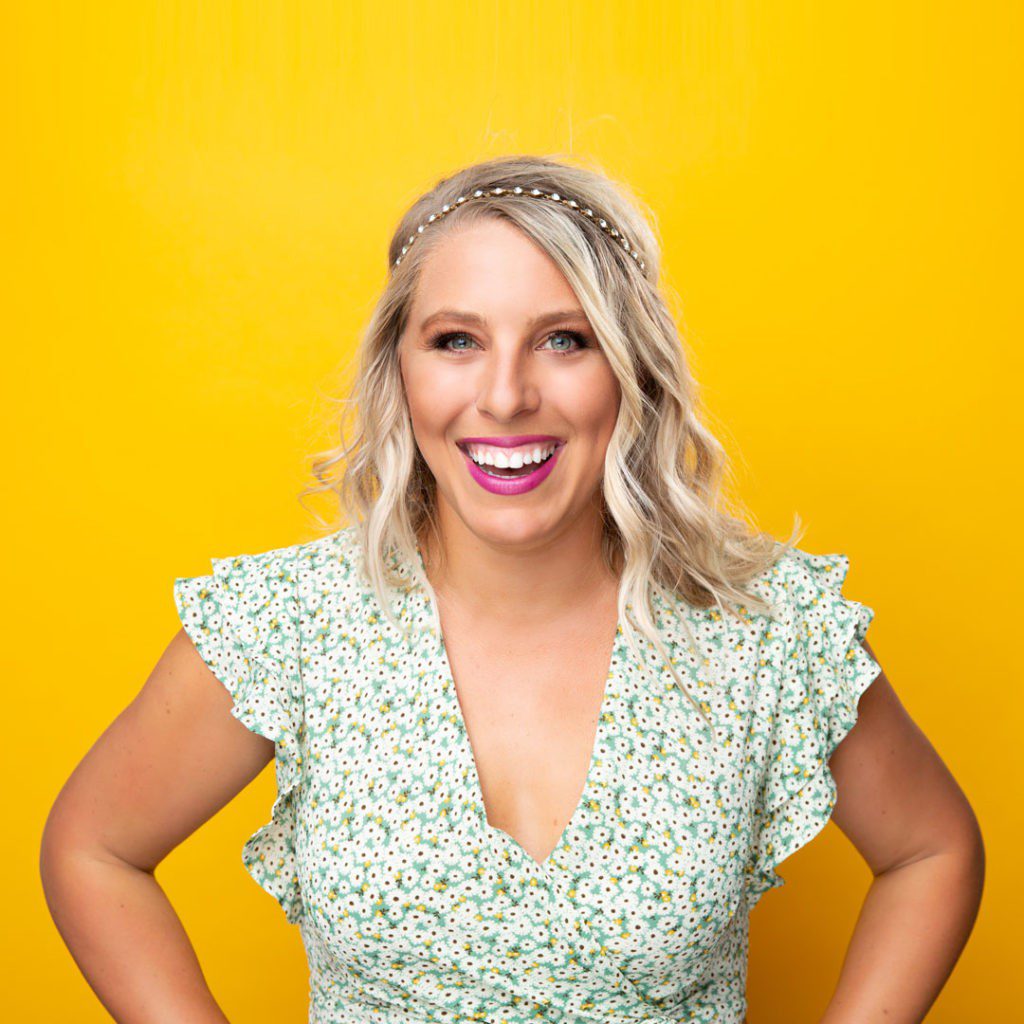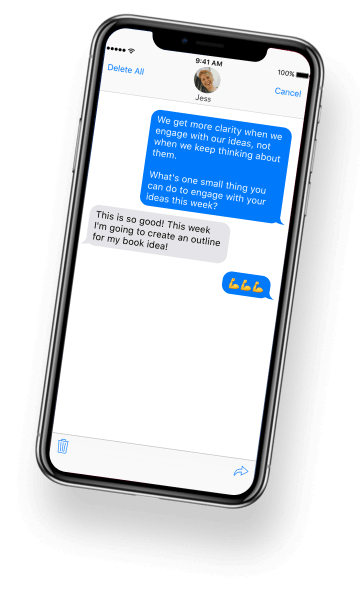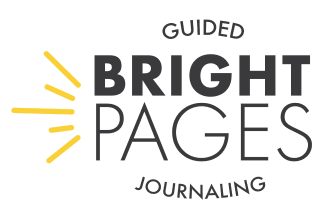
Episode #9
How to Start a Journaling Habit
- Categories: Personal Development, Writing
TUNE IN: APPLE PODCASTS | SPOTIFY | STITCHER
Show Notes:
Have you explored the benefits of daily journaling? During quarantine, I began setting aside 15 minutes a day to explore my thoughts and ideas through this journaling process. In today's episodes, I'm sharing 6 steps to start a journaling habit!
The World Needs Your Bright Ideas, so let’s start by writing them down.
"People who write down their ideas are 43% more likely to achieve them." via Dominican University
6 Ways to Start A Journaling Habit (5:38)
1. Decide when you want your creative hours to be.
2. Set a reminder to hold yourself accountable.
3. Set a timer for your writing time for 15 minutes minimum.
4. Don’t edit, just write.
5. Keep a notes tab of topics.
6. Don’t worry about creating a masterpiece, just show up.
This Episode's One Liner: The World Needs Your Bright Ideas, so let’s start by writing them down.
Links
brightpages.com
Expecting Amy on HBO
Review the Transcript:
Hello, everyone. Welcome to Business on the Bright Side. I am so excited for today's episode about journaling, because journaling has been something that I have been exploring a lot this year. I know that during quarantine, we've all had some quiet time with ourselves, and maybe our minds are going a little crazy if you're like me. So, I have needed that sacred time in the morning with just me and myself at the keyboard organizing my thoughts. And I realized that so many of my ideas and the things that I've created have started with just that 15 minutes of writing a day, whether it's Headbands of Hope, whether it's my book, or even this podcast, just start by writing down these ideas. Because there was a study at Dominican University that people who wrote down their ideas were 43% more likely to achieve them. Because when we write down our ideas, it just makes it all more real. It takes the clutter out of our head and gives us clarity on that sheet of paper.
I'll talk about this a little bit more in the episode. But I want to mention it here that I have been working very hard with my team, creating a journaling platform called Bright Pages. Bright Pages is a guided online journal for doers. So, if you have an idea, if you want to write a book, if you want to just get some of these things that are in your head onto paper, make sense of them, I am working on something specifically for you. We just have a small group of people who are trying it out right now, but we're going to be opening it up to more users in the near future. So, head to brightpages.com, sign up for the waitlist, and you'll be hearing from me soon. So, let's get to journaling.
What's up everybody? It is Jess Ekstrom and welcome to Business on the Bright Side, the podcast where you can learn how to make a living and make a difference at the same time. Life is short and so is my attention span, so let's get started.
Sara Blakely, Oprah Winfrey, Arianna Huffington, Albert Einstein. These are all people that journal every day. Now, I'm putting my name in that hat because honestly, journaling has been something that has truly saved my life. I know that that sounds drastic, but I really was just feeling like I was waking up in the morning and I was just swirling around with my thoughts, trying to make sense of them, not really sure where to begin my day and just feeling completely overwhelmed by just life in the morning. And research has shown that our short-term memory can only hold five or six, maybe seven items in our head at a time. So, anything beyond that, and we start to forget things or feel overwhelmed with information. When we journal, it clears that clutter in our mind, and as a result, we can think more clearly. And when we can think more clearly we can do things with greater intent and also greater results.
When I was writing, Chasing the Bright Side, I was on a deadline. I had a manuscript that I had to turn in by a certain date. I had this schedule with a certain number of words I wanted to hit a day. And so every morning when my alarm went off, I didn't check my phone, I didn't go onto email, and I just sat with my computer and I wrote. And I felt freaking incredible. I would start my day after my writing time with just clarity, with just this calm and this ease. If you know me, that doesn't come natural to me. I'm like have the resting heart rate of a hummingbird. But I was starting my day with clarity because I was just taking time to write stuff down, to write down my thoughts. Not even all of it went in the book. It was just taking a moment to have a date with myself before I became completely consumed with what everyone else was thinking, what everyone else was saying online, or responding to messages, or DMs, or any of it. It was literally just time for me, where I could sort out my thoughts before I began to consume someone else's.
So, I'm a huge advocate of journaling so much so that I started my own online journaling platform called Bright Pages. I wanted to start Bright Pages because I wanted to create a one-stop shop for journaling, not just any kind of journaling, but journaling for doers. Because I think that all of the things that I've created, whether it's Chasing the Bright Side or Headbands of Hope, all of it started on a sheet of paper. All of it started just by writing out some of these ideas and expanding them and building off of them and revisiting them. And so if I can help people who have ideas put them on paper in a way that holds them accountable, in a way that brings them clarity, or in a way that just makes sense, then I can help people bring their bright ideas to life.
Let's start with how to start a journaling habit. Because I know that sometimes we have the best intentions, that we want to show up and write every day, but then we're like, “Oh, I got to make coffee. I got to brush my teeth. I got to do all these things.” And I get it, life gets in the way, but this is something that I truly feel like you should make time for. No matter where you're at in your life or your career, journaling can help you get the clarity that you need so you can get to where you want to go.
Number one, decide when you want your creative hours to be. So, are you a morning person? Do you need a break in the afternoons? Do you like kind of decompressing in the evening? Where do you feel like you have that creative itch? For me, it's the mornings. I like waking up and putting my thoughts to paper and kind of making sense of my day before I dive in. And so decide where your creative hours are, where you want to best use that writing time.
Number two, set a reminder for that time, or literally block it out on your calendar. It's one thing to just pick those creative hours, but it's another just to hold yourself accountable. Let's say you have a meeting with someone on your team or a dentist appointment, you're going to take that seriously. You're going to show up, you're going to get that filling even if you don't want to, or you're going to do that presentation. When you block it off on your calendar, you make that more real. You make it a real commitment that you're like, “Nope, this is my writing time. I have to show up and do this.”
Number three. I want you to actually set a timer for that writing time and give it 15 minutes minimum, because it is so easy to show up at the keyboard and be like, “Nope, nothing's here. Inspiration isn't flowing out of me.” Like, “No masterpiece is going to be born today.” But if we just kind of release it and just start writing, give ourselves at least 15 minutes, maybe more, it kind of releases that floodgates. We can't give up so easily because a lot of times that inspiration doesn't come to me in the first one, two, even five minutes, it's usually around minute seven or ten where I kind of start figuring out, “Oh, I didn't know that was in my head.” Or, “I didn't know that this was something that I had to say.”.
Number four, don't edit, just write. Because again, we can put so much pressure on ourselves that, that first draft or whatever we're putting out there, or putting the pen to paper has to be something that we would immediately go publish on LinkedIn, or share with the world, or printed out as a memo like Jerry McGuire style and share it, and it ripples across the whole world or industry. And that just doesn't feel good when you're trying to be creative. You're putting so much pressure on yourself. So, don't put your editing hat on, don't put your marketing hat on, just show up and write.
I was actually watching Amy Schumer's documentary on HBO. It's really good, if you haven't watched it. It's called Expecting Amy. She talks about how she puts together an hour of stand-up. And each joke or each bit she says she fills up pages and pages of notebooks about this one joke or this one bit, and then she goes on stage and she workshops it and she workshops it. And then eventually when she actually delivers it in her special, it might even just be like one or two lines. But she has to start by putting it all out there, so she knows what the good parts are and where she needs to go. So don't edit, just write.
Number five. I like keeping a notes tab of topics on my phone that I might want to explore when I journal. If you are encountering something throughout the day or an interesting topic or something that sparks you, whether it's a conversation or a quote or whatever, start a notes tab, start writing that down. So then when you show up to journal, you're like, “Oh, I remember that I really wanted to respond to this.” Or, “I really had a reaction when this happened.” And so you kind of have your little notebook of personalized prompts just for you when you show up at your keyboard.
Number six, don't worry about creating a masterpiece, just show up. I became so paralyzed at my computer when I started saying to myself, “I'm going to show up right now and write a book, and it's going to be the best book ever, and it's going to be all these things.” And my inspiration wasn't coming to me because I was just putting so much pressure on writing a book. I talk about this in Book Pop Workshop for my course for women who want to write non-fiction books. Sometimes when you have writer's block, just say, “What's the most honest thing I can say right now?” And when you write that, it releases this floodgates and it loosens your grip on perfection and you just start writing.
So, don't worry about creating a masterpiece, just show up. And if you want that accountability and that creative spark, I encourage you to sign up for the waitlist to try Bright Pages. This has been like my quarantine baby that I've been working on. My guided online journal for doers. So how it works is you have your own private journal with your username and password. There's different daily prompts every day designed to get you that creative spark. And you can answer these prompts in the platform, in Bright Pages, or we send it to your email. You can actually just respond to the email with your post and we'll archive it for you, which I think is awesome especially if you're on the go.
You can tag your entry so you can organize them, you can upload photos. But my favorite thing that we created is called Prompt Pathways. So, you get seven days of prompts based on a certain goal that you pick. Whether you want to write a book, whether you have a business idea, whether you want to give a keynote talk, or maybe you're just in a creative rut and need that spark. You pick the pathway and it delivers prompts based on that goal.
We are just getting started and we are testing this out. So, we have a select small group of people that we've released this to, and they have been loving it, which is so awesome. People who weren't journalers are now avid journalers, or people who love journaling now just have a more organized way to do it with accountability and that creative spark. So, if you want to sign up for the waitlist, head to brightpages.com and sign up today.
Let's do a quick recap of how to start a journaling habit. Number one, decide what you want your creative hours to be; morning, afternoon, evening. Number two, set a reminder or block out that time. Number three, set a timer for 15 minutes minimum to write. Number four, don't edit, just write. Number five, keep a notes tab of topics you might want to explore when you journal. And number six, don't worry about creating a masterpiece, just show up.
I'll leave you with this, the world needs your bright ideas, so let's start by writing them down.
Thanks for listening to Business on the Bright Side, I'm your host, Jess Ekstrom. For all the show notes, head to businessonthebrightside.com and be sure to tell me what you thought of this episode on Instagram. And if you're picking up what I'm putting down, subscribe and write a review wherever you consume podcasts. See you next time and keep chasing the bright side.







